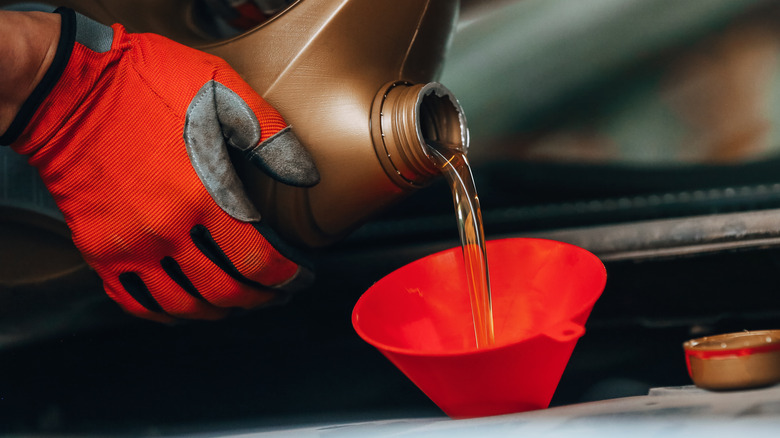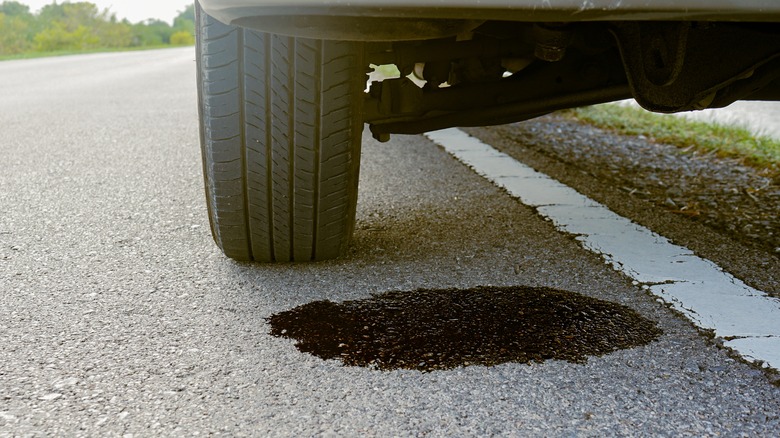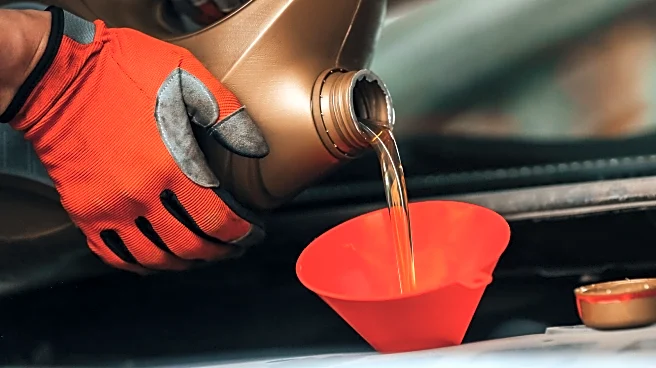
High-mileage oil isn't some secret elixir reserved for 20-year-old Honda Civics with a mystery stain on the headliner and 3.5 working speakers. It's real. And it serves a purpose -- mainly for engines
that are showing their age, either in years or miles. Either way, there's a question lingering: does high mileage oil really make a difference, or just the synthetic version of snake oil?
Standard oil does the job for most cars under 75,000 miles. But once you pass that threshold -- or start noticing a few drips in the driveway -- high-mileage oil might be your new best friend. It's loaded with additives that help condition worn engine seals, reduce leaks, and minimize the oil burn that older engines seem to do like it's a party trick. Most high-mileage oil blends also thicken slightly at high temps and will keep its viscosity to help aging parts keep tolerances tight.
Still, you don't need to rush the switch just because you hit a magic number on the odometer. It's about condition, not just mileage. And no, it won't reverse damage like some miracle engine Botox -- but it might help your precious and over-valued old car age a little more gracefully.
Read more: Save Your Engine: 5 Tips For Preventing And Cleaning Carbon Buildup
Signs It's Time To Make The Switch

So when exactly should you make the move to high-mileage oil? Let's talk about the signs first. Here's where your mileage matters: 75,000 miles is the usual benchmark, but there are other signs worth watching. If you've noticed oil stains under your car or the occasional smoky puff from the exhaust, it could be your engine's way of waving a white flag. Older engines often develop tiny leaks as seals and gaskets begin to degrade over time -- and high-mileage oil is formulated with conditioners that help soften and re-expand those worn seals to reduce leakage.
You might also hear your car before you see it. Increased engine noise, especially at startup, could point to thinning oil or higher friction -- both of which high-mileage blends are designed to handle with enhanced lubrication. And if you're constantly topping off the oil between changes, you're likely dealing with oil consumption issues that standard oil just can't solve. High-mileage formulas offer a thicker consistency and additives that help slow down that burn.
Even the age of your car matters. Vehicles over seven to 10 years old can develop the same issues as high-mileage ones, even if the odometer hasn't hit 75,000 yet. Time takes a toll on rubber and metal alike. You'll never know if your car will make it to 250,000 miles or not, but switching to high-mileage oil might be one of the easiest ways to show it some love.
Is It Ever Too Late (Or Too Early) To Switch?

There's a sweet spot for switching to high-mileage oil -- and it's less about a magic number and more about the engine's overall vibe. Sure, 75,000 miles is the common milestone, but some engines start aging gracefully while others fall apart long before that. The thing to watch is condition. But if your car's been babied with regular oil changes and doesn't show any symptoms, there's no rush. Just don't be like those owners whose cars are going to age terribly.
Now, here's where it gets tricky. High-mileage oil is great for older engines that need the support -- but in a newer engine, it's not recommended to do so. It's like handing a protein shake to a toddler: well-intentioned, but not quite right. And no, high-mileage oil isn't magic. It won't undo years of neglect or bring a rough engine back from the brink. But it's not just some overpriced trend, either.
If your engine's aging, and especially if you're noticing leaks or oil loss, this blend is doing more than marketing --- it's doing maintenance. It's not a miracle in a bottle. It's just the right tool for the job when your car's no longer fresh off the lot. So go ahead and switch the oil; your engine might just thank you.
Want more like this? Join the Jalopnik newsletter to get the latest auto news sent straight to your inbox...
Read the original article on Jalopnik.









